by Nick Landon, Cinema Den
There are people born into the movie business, but it’s almost always on the silver side of the screen, not behind it. This story is about a man living in South Florida whose own journey in many ways closely parallels his grandfather’s emigration to America more than a century ago.
Tom Alexander is a writer, broadcaster, voice actor, and composer. He’s appeared in and written several national TV commercials. He’s been an on-air voice to tens of thousands of people on nationally syndicated radio. He co-founded The Sportsman’s Daily, a satirical sports website which supplies content to major sports sites and radio outlets. His music has been heard on radio, and in films and commercials. He has even sold three screenplays and co-created reality show pilots.
If you haven’t heard of him, you’re in the majority. But it doesn’t stop this multi-faceted artist from pursuing his dreams — one in particular.
NL: Your life is steeped in storytelling and performing in one form or another, and it was all born in a town in Northeastern Pennsylvania with a very odd little name — Forty Fort.
TA: Yes. Forty Fort is a small borough on the West Side of the Wyoming Valley, just across the Susquehanna River from Wilkes-Barre. The origin of the name is quite simple really and dates back to the Revolutionary days when forty people settled the area and built a fort. Hence, Forty Fort. Not too romantic is it? (laughs)
NL: It was here where your grandfather, also Tom Alexander (Alexopoulos), came out of retirement from a life as a motion picture exhibitor, to build his legacy movie theatre for his four sons, opening the Forty Fort Theatre in January of 1938.
TA: Exactly. It was a gift to the town and his family. Three generations worked there.
In the 1970s, Tom Alexander grew up in the building, and for the first half of his life, it’s all he knew. The Forty Fort Theatre was the center of his life, more his home than the house he grew up in. He helped out at the family business from the time he was 7 years old. When he was 12, he began working there officially. He did everything from pop corn, to pull the curtain backstage to unveil the Cinemascope screen, cleaned the auditorium, worked the concession stand, sold tickets, and eventually became a projectionist. He’d sit in his dad Peter’s office as he’d call his film booking agent in Philadelphia to order films for exhibition.
NL: You had a little something to do with selecting the movies, even as a boy?
TA: I’d ask my dad to book Godzilla movies as often as possible for the Saturday afternoon children’s matinees. Godzilla was my first hero, and so my dad would often oblige. I think the kids in the neighborhood liked coming to see Godzilla too. Eventually, I outgrew him, in a manner of speaking.
NL: You’ve described your life in Northeastern Pennsylvania, and the building where “everything happened” as magical.
TA: Yeah, it really was. It was there where I learned to ride a bike in the theatre parking lot. I was taught how to run the movie projectors from a man who’d been doing it since the silent era. I’d sit with my dad and his brothers and learned about our Greek heritage. My dad’s youngest brother, Taki, was a fine jazz pianist, and the upright Steinway housed backstage was were my lifelong love of piano and jazz was born.
NL: You’ve said it was more your home than your own house. You even met your future wife, Gwyn, there when she came to see Crocodile Dundee with her father.
TA: That’s right. I guess we’ve done something right, we’ve been married 26 years.
NL: When your father died unexpectedly and suddenly in October of 1986, your life changed forever. You said he was your mentor and one true hero.
TA: Absolutely. He was my hero. He had a zest for life, and an overall outlook on things which he passed down to me. We all play the hand we’re dealt in life, and in some areas, I wouldn’t mind a reset, but to have had a dad like him, I came out a big winner. He was like a father to everyone — all my friends. He was the friendliest, kindest person you’d ever want for a dad. And he had that warm voice like Howard Cunningham. Many of my friends agreed he reminded them of him. He was smart, funny, and had a mind like a steel trap. His memory for details was astounding. We could be talking about the history of movies, baseball, classical music, ancient Greek history, literature, and he’d be right on it. No fact checker needed. As a child, my worst fear was to lose him early. Sadly, that fear came true. I was 22 when he died. He just missed seeing me graduate from college. He never met my wife, let alone see me marry or have a son.
With his father dead, uncles aging, and Tom having no say in the matter, the family sold the Forty Fort Theatre and it was soon converted to an office building, which it remains today.
NL: You really wanted the family to keep it.
TA: In the worst way. But I was an army of one in those days. I wanted to keep the theatre, and run it myself, but it wasn’t to be. Putting the key in the door and locking that building for the last time was shattering. Next to my parents dying, it was the worst day in my life. But I’ve never given up the dream of someday reacquiring it, and giving that town its theatre back. I hear from people all the time via Facebook and my own theatre dedication website. I’ve had literally hundreds and hundreds of exchanges with people who loved it and miss it as I do. I should add that it was my identity. I was the kid from the movie theatre. It really was all I knew. I had dreams, aspirations of course. But the theatre was my foundation, the touchstone for everything in my life. It all happened there. It took a long time before I got my confidence back, my sea legs, and figured out how I was going to make it in a world outside of the theatre.
Though Tom still doesn’t have the resources to make the dream of reacquiring the theatre come true, he’s been considering an alternative path.
NL: You’ve talked in the past about sharing your grandfather’s story.
TA: Yes. Long ago I decided telling my grandfather’s life story was something I simply had to do, but I procrastinated. Though it’s been the only thing I’ve intentionally procrastinated on for one very important reason. Though I wanted to write it 20 years ago, I stopped myself. I figured I need to live a little and experience my own journey before I could tell his. He has a truly wonderful rags to riches American story — a Greek immigrant with little education builds a small cinema empire and even makes movies. I’ve got tons of boxes of memorabilia, photos, and press clippings that guide me.
Four years ago, Alexander looked in the mirror and decided now was the time. He built a website and began sifting through the countless photos, scrapbooks, and even cassettes of interviews he’d done with family members. It was the foundation — the first building block for writing the screenplay of his grandfather’s life which he’s titled, The Exhibitor. Tom actually never met his grandfather, who died 17 years before he was born. A fall down the staircase of his Kingston, Pennsylvania home resulted in a broken skull, and unexpected early death.
NL: So even though you never met him, you seem to really know your grandfather.
TA: I think so, yes. I suspect in many ways we’re a lot alike. Don’t get me wrong, overall, he had it way harder than I ever will. But in some ways his path was clearer. He overcame the outward racism that was heaped upon Southern European immigrants at the time. He also rose above the petty bigotry and stereotypes which I’m told he referred to simply as a nuisance born of ignorance, which I think is a very interesting description. He got past it all with good old fashioned hard work, honesty, and a smidgen of good timing — he was there when the cinema industry was starting. And if your credit was good, the banks would lend you the money. It all just worked out for him. Those basic principles are tougher today. There are a lot more grey areas now, and hurdles to clear. But that doesn’t stop me from moving forward. I may be 50, but I don’t feel it, at least mentally. I know people my age that have their early retirement in queue already. I could never even think about that. Of course a significant portion of that is financial for me, but the motivation is really to preserve my spirit, my sanity. Bringing people some form of entertainment and keeping my creative energy going, and being a student of life is a constant for me. If I stop doing that, I die. Plain and simple. Very early on, I learned to set short and long term goals and work towards them. I have things mapped out months in advance and address them daily. I don’t plan on ever reversing that philosophy.
NL: So, sifting through all the theatre memorabilia from seven different decades has been a key in the storytelling process of your grandfather’s life.
TA: Unquestionably. It’s all there in black and white, and some color too. His life story is really quite extraordinary. I have no doubt it would make a great movie.
NL: And you’re writing it.
TA: I am, yes. It’s part The Godfather, part Cinema Paradiso. He came toe to toe with some pretty unsavory folks during his climb. But this Greek immigrant with the sixth grade education, and who was self taught, built some of the very first nickelodeons in the country, then when on to build full fledged neighborhood theatres and movie palaces. Often times, I feel just accidentally related to his great man. His story is worth telling, I promise.
NL: What about your story?
TA: My story is ongoing — a definite work in progress. Part of my story is to share his story, because he built a dream founded on dreams, which I think is pretty incredible. He took great pride and joy in seeing other people happy. He accomplished that. I share that. I love when people write to tell me they enjoy hearing me on the radio, reading my stories, or listening to my music — it’s an honor. But I miss the theatre. The art and entertainment was already created for us of course. I mean, it wasn’t our art they were coming to see, but that hardly mattered, because the contact with the people and passion we brought into serving the people, was special to all of us, me included. I miss the day to day interaction with people, and just knowing that there’s a place for them to go to forget their problems, and spend a couple hours laughing and perhaps being inspired to dream their own dreams.
NL: I’d like to hit on some specifics of your story. You had gone to school locally in Northeastern Pennsylvania at King’s College as a communications major?
TA: Yes. I didn’t start there. I transferred to King’s after attending College Misericordia (now University) which was nearby. I put what I’d learned at school to use and tried my hand at radio, which I really enjoyed. In many ways it reminded me of being a projectionist. And initially, I had some success with it. I moved my family to Fort Lauderdale to work at CBS Sportsline, and became the Head Writer/Musical Director (and character voice guy) for a nationally syndicated show. But the landscape in the industry changed. I found that my talents for voice work and storytelling and song parody writing were no longer a high priority, so I had to adjust again.
NL: You wrote advertising copy, and still do?
TA: Yes. It’s not exactly my favorite kind of story telling. I prefer the kind with a nice arc and exciting, deep characters, as opposed to telling consumers why they should try this brand of toothpaste instead of the other. But, it can still be interesting.
NL: A few opportunities for TV commercial appearances have come along as well as script writing, including co-writing a work-for-hire screenplay which became a low budget comedy, and Leslie Nielsen’s final film.
TA: That’s right. That film was a blast, but trust me, movie wise, it’s nothing to write home about by any stretch. It was a job. A fun one, but a job. I have had fun on many of these projects. Though, truth be told, I seem to have existed on the periphery of a variety of businesses in the so-called ‘entertainment/media industry.’ I’m of a certain age, as they say, and although I still get these little nuggets from time to time, they’re not enough to build a career or a life on. And believe me, it’s not for the lack of trying. I’ve never stopped actually.
NL: I’ve seen your office with piles of projects stacked in mountains on the shelf — screenplays, musical recordings, TV pilots, radio demos, manuscripts — all finished.
TA: Finished but unsold (laughs).
NL: Anything heating up on the TV or movie front?
TA: Well, things are always jockeying for position. We’ve got a pilot for a reality show called “Condo Wars” in the can and being pitched. It’s all in the title, condo residents go head to head. Good clean fun. I’m still waiting if there’s going to be a sequel made to the first frat boy movie we did a couple years back. The script is done.
NL: Tell me about The Cinemaniac.
TA: I develop and pitch a lot of projects for people, but this is the only one I’d insist on hosting myself. The concept is simple. I ride around in a van going from town to town seeking out old movie theatres that are still in operation, and talk to the owners and get the history and unearth all the nuggets these places seem to have at every turn. I can speak their language. I grew up in it and understand it at its core. Now we’re exploring the feasibility of shooting a pilot for that.
NL: I suspect work ethic isn’t a problem for you?
TA: No. Work ethic I’ve got, to a fault I suppose. But at this point on the timeline, I’m beginning to prioritize a lot more. I don’t want to waste my time with things I’m not really passionate about. I’ll line up my bill-paying work of course, but I’m targeting the things I love more. So I figured it’s high time I focus on the three things that matter the most to me, right after my family of course.
NL: What are they?
TA: Well, one obviously is telling my grandfather’s story and finding a way to bring it to the small or big screen. Two is somehow getting the theatre back and returning it to its former glory, and by extension, perhaps begin a trend of old cinema restorations across this country, much like the way we’ve gone back to the old classic style baseball parks. And three is, devote the balance of my time to my music — my most soulful passion — composing contemporary jazz and other music for solo piano, and my band, and sharing it with who’ll ever listen.
NL: Your music is paying off a bit.
TA: Slowly but surely, it is. After a lot of hard work for many years, I’ve finally graduated to the place where significant composers and players on the world scene are recognizing my work a bit now (Keyboardist/Drummer extraordinaire, Gary Husband recently played on Tom’s composition, Looks Like Home). It’s an honor to have musicians you really admire play your stuff and tell you they really like it. It inspires me to keep going.
NL: Do you work on music a lot?
TA: I try to every day. Either at the piano in my home or the space were the band rehearses and I keep my electronic keyboards. I write music constantly and practice my technique as much as time allows. It’s vital for me to do so.
NL: You’ve composed for film, and sometime back, NPR did a feature on you and your music on Weekend Edition.
TA: Yes, that was a fantastic experience. It was in 2001. I went to their studio in Washington DC and was interviewed by Liane Hansen. I got to play on their grand piano, and lo and behold, when the program aired across the country, my solo piano CD sold thousands of copies. It was crazy. I had interest and offers coming in to record, and compose, and even open for existing touring artists. Then just as things were about to move to the next level, 9/11 happened, and of course the whole world just stopped. It was tough for anyone to try and get things rolling again after that horrible event.
NL: But you continued.
TA: I did. And music was a real catharsis for me. It always has been.
NL: Let’s tally it up. Bringing your grandfather’s story to the screen, restoring the theatre, and having your music career evolve, while balancing family life and your paying work…sounds like a tall order to be sure.
TA: It is. But I’m Greek, we always do things the hard way (laughs). If it’s not a challenge, why do it?
NL: Your Greek heritage drives you?
TA: I think it’s in the DNA for sure. I was just raised around people who had great passion for life and history and art. And Greeks in general seem to have had an abundance of all that. I guess they got in line twice. Also when they set their sights on something, you’d better get out of the way, or you might get knocked over (laughs). I tend to push a lot. My relatives in Greece share the same drive, no matter what kind of work they do. Obviously other cultures share the same passions and drives. But I can only speak for Greek people. They’re just insanely proud of their love of life and what they brought to western civilization (laughs) in a nutty kind of way.
NL: It sounds like it’s all about the work, the art, the process. Your name in lights doesn’t seem to interest you.
TA: Nah. Fame, as they say, is fleeting anyway. I know several famous people. I hear it all the time, that it can be incredibly empty. Everyone likes to be appreciated, and get that pat on the back. I’m no different I suppose, but that hardly drives me. Of course encouragement and appreciation from others, especially those you really admire and respect, is certainly inspiring, but I’d still keep creating anyway for the sake of creating. My motivation is from within. To me it’s just nuts to go into it with the idea of “I’m going to be famous.” What does that even mean? It just happens that the sort of work I do is on, or at least related to, a platform that gets you noticed, sometimes on the world stage. From that can come some level of fame. If something I ever created, like music, a screenplay, show, whatever, resulted in that, I’d just use it to keep creating and help others. For me, it’s a wash, rinse, repeat. I visualize, create and learn from the process, then share, and start the whole process over again with whatever the next thing is. You can keep the other stuff. I’m way too low key to live that lifestyle anyway. The parties, living bi-coastal, all that nonsense I have zero interest in. One look at me will tell you that. Hell, I’ve probably only got 50 or 60 years of living left (laughs). I’ve got keep it simple.
NL: Do you relax?
TA: I do. Actually, I’m quite good at that (laughs). I’m fairly adept at just shutting it down when I need to.
NL: How?
TA: I like to walk and swim for exercise. Sometimes I’ll shoot hoops in the driveway with my son and his buddies. I used to golf a lot, but it’s been many years. I’m still a huge baseball fan, and I like to watch the Phillies throughout the season. I love to cook. That gives me pleasure. Unfortunately, I also love to eat. Of course having grown up in a movie theatre, I keep my eye on the industry, but prefer older movies, especially from the 1970s, which I think was the greatest decade for world cinema.
NL: Yes, let’s get back to the theatre. If you don’t have the resources to do it, how do you think buying it back and restoring it is even possible?
TA: Trust me. I’m aware of the hurdles. It’s a huge process, and a long one. But it’s one I’ve got to try. It’s on me, and on me alone, which is fine. I need to finish his (grandfather’s) story, then hit the pavement. Then, if I can somehow bring that story to the masses, it’s a start. By nature of that, word would inevitably get out about the desire to bring the old place back, and I should add there are hundreds of people who share this desire. The resources are out there. I just don’t have them yet. But maybe there’s an angel out there who shares the same passion for old things and great American stories that I do. Hollywood is filled with those people. If my story can reach one of them, there’s a chance. Before it’s too late, I want to bring that back and run it in the same spirit my family did. It’s in me. The first half of my life was exclusively that life. I’ll need a lot of things to fall into place. But first things first, I’m going to finish what I can control, like the screenplay, and the pilot for the Cinemaniac. Then when that’s done, we’ll reassess, recalibrate, and move forward. In the end it’s all about the doing. I will not quit.

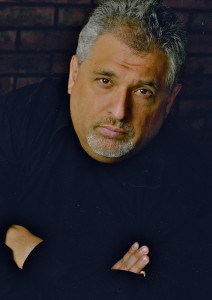
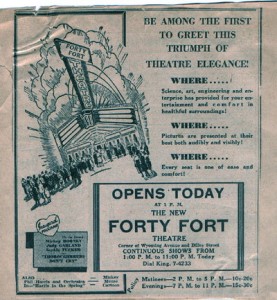
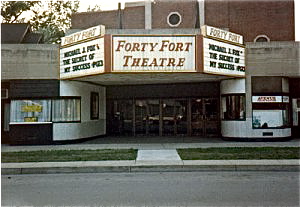
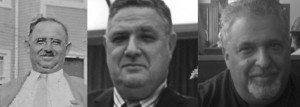
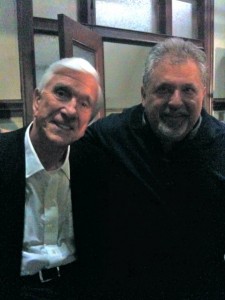
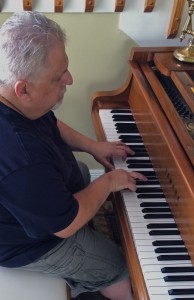
Recent Comments